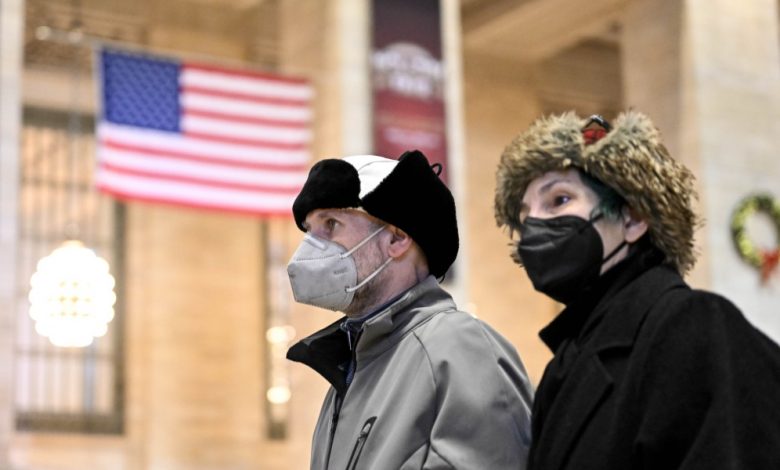BQ and XBB subvariants of COVID evade immunity and medical treatments, the study says

Scientists have warned that the omicron subvariants that are causing COVID cases among Americans appear to elude the immune system and medical treatment of the virus.
In a new study published in the scientific journal cellColumbia University and University of Michigan researchers warned that Omicron subvariants BQ.1, BQ.1.1, XBB, and XBB.1 are “the most resilient.” [COVID] variants to this day.”
The research team studied how the new strains responded to antibodies by mixing them with blood samples from people who had been immunized with either three or four doses of the original vaccines, had received a new bivalent booster shot, or had breakthrough infections after being vaccinated through the Omicron sub-variants BA.2 or BA.5.
Their results showed that neutralization of BQ.1, BQ.1.1, XBB and XBB.1 was “significantly impaired” – even when antibodies from the new bivalent vaccines were used.
However, the updated vaccines provided slightly better protection than the original vaccines, the study found.
The new so-called bivalent vaccines developed by Pfizer and Moderna to work against both the original COVID-19 strain and the newer Omicron subvariants were approved for use in the US in August.
In participants boosted with a bivalent vaccine, antibodies to BQ.1 were 24-fold lower, anti-BQ.1.1 41-fold lower, anti-XBB 66-fold lower, and anti-XBB.1 85-fold lower in comparison on their level of response to the original COVID strain that emerged in the Chinese city of Wuhan in late 2019.
The researchers also found that all clinical monoclonal antibodies — artificial antibodies used in pharmaceutical treatment of COVID, such as AstraZeneca’s Evushield and Bebtelovimab — “were rendered inactive against these variants.”
Drugs like these are typically used in immunocompromised patients to limit the spread of the virus in their bodies after they test positive.
“Our results suggest that BQ and XBB subvariants pose a serious threat to current COVID-19 vaccines, render all approved antibodies inactive and may have gained population dominance due to their advantage in antibody evasion,” the authors of the study wrote in their paper.
“Unfortunately, both the BQ and XBB sublines are now fully resistant to bebtelovimab, so we don’t have an approved antibody for treatment. Also…Evusheld is also completely inactive towards the new subvariants. This poses a serious problem for millions of immunocompromised individuals who do not have a robust response to COVID-19 vaccines. The urgent need to develop active monoclonal antibodies for clinical use is evident.”
Data from the Centers for Disease Control and Prevention shows that as of December 10, BQ.1 and BQ.1.1 were by far the dominant strains of COVID in the US, together accounting for 68% of cases.
When BQ variants were on the rise in October, America’s top doctor, Anthony Fauci, called them “annoying” because of the speed at which they were spreading.
XBB accounted for 4.7% of cases in the week ended December 10, making it the fifth most common subvariant in the United States. BA.5 and BF.7 rounded out the top 5, coming out as the third and fourth most important subvariants, respectively.
Rising COVID cases prompt US to act
US cases of COVID have risen dramatically in recent weeks, with the number of people reporting positive tests up 49.6% in the week ended December 7 from the previous week. The rise in cases, along with an expected spike in infections in the coming winter months, has prompted the Biden administration to take action, including offering more free COVID tests and opening more mobile vaccination centers.
In New York, health officials have advised the public to wear masks indoors and in crowded outdoor areas as New York City grapples with rising rates of COVID-19, as well as the flu and RSV.
The study, published this week, adds to existing concerns about the ability of the BQ and XBB subvariants to evade immunity and pharmaceutical intervention.
Scientists at Peking University’s Biomedical Pioneering Innovation Center in China found earlier this year that both variants evade the immunity of bebtelovimab and evusheld – and the authors also warned that both strains could potentially lead to more severe symptoms.
Our new weekly Impact Report newsletter explores how ESG news and trends are shaping the roles and responsibilities of today’s leaders. Subscribe here.



